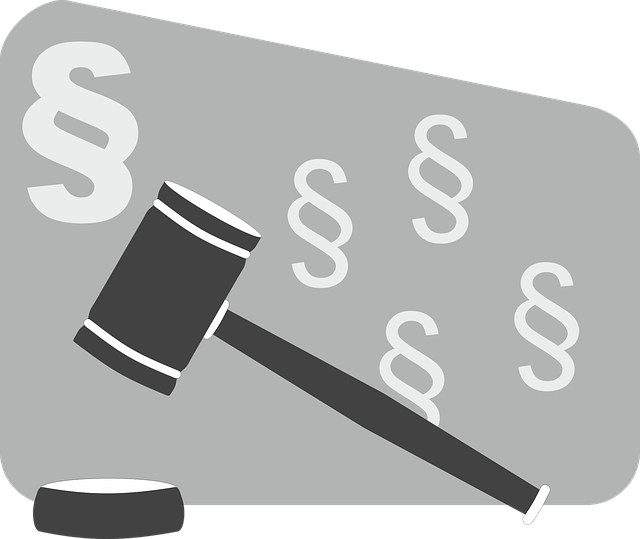Whistleblower protection laws are vital for combating corruption and unethical practices within organizations, offering legal recourse to expose illegal activities without fear of retaliation. The legal process involves filing a detailed complaint, triggering investigations and strategic approaches to counter corporate defenses. Settling property disputes through litigation provides advantages in white-collar and economic crimes cases, offering control over outcomes, discreet handling of sensitive information, and establishment of legal precedents. Successful whistleblower protection lawsuits lead to financial settlements, deterring unethical practices and contributing to a more transparent business environment. Specialized attorneys have secured notable defense verdicts and resolved property disputes through litigation, demonstrating the effectiveness of this approach.
“Whistleblower protection lawsuits play a pivotal role in upholding ethical standards and ensuring accountability within organizations. This comprehensive guide explores the intricate world of whistleblower laws, providing insights into their crucial rationale. We’ll navigate the steps to file a lawsuit, common challenges faced by whistleblowers, and strategic defense mechanisms.
Furthermore, we delve into the art of settling property disputes through litigation, offering case studies that highlight the profound impact successful whistleblower actions can have on society. Understanding these legal avenues is essential for both individuals with valuable information and those seeking to protect their rights.”
- Understanding Whistleblower Protection Laws and Their Rationale
- The Process of Filing a Whistleblower Protection Lawsuit
- Common Challenges and Defense Strategies in Such Cases
- When Is Settlement Preferable? Strategies for Property Disputes
- Case Studies: Successful Whistleblower Protection Lawsuits and Their Impact
Understanding Whistleblower Protection Laws and Their Rationale

Whistleblower protection laws are designed to safeguard individuals who expose illegal or unethical activities within their organizations. These laws recognize the vital role whistleblowers play in uncovering corruption, fraud, and other misconduct, often leading to significant policy changes and settlements of property disputes through litigation. By providing legal recourse for whistleblowers, these statutes encourage citizens to come forward with information that can hold powerful entities accountable without fear of retaliation.
The rationale behind whistleblower protection is multifaceted. It not only ensures the integrity of investigative and enforcement processes involving white-collar and economic crimes but also fosters transparency and accountability in corporate governance. This legal framework allows for all stages of these processes to be conducted fairly, protecting whistleblowers from adverse employment actions or other forms of punishment. For their clients, this means access to justice and a chance to seek redress for both personal harm and broader societal interests.
The Process of Filing a Whistleblower Protection Lawsuit

When considering a whistleblower protection lawsuit, understanding the legal process is crucial. The journey begins with filing a complaint, outlining the violation and damages incurred due to the retaliation or potential threat of retaliation for reporting unethical practices. This initial step sets in motion all stages of the investigative and enforcement process, including an evaluation of the case’s strength by legal experts.
In high-stakes cases, where significant financial or reputational damage is at stake, a strategic approach becomes essential. Whistleblowers often face formidable challenges from well-resourced corporate defenses, aiming to discredit their claims. However, with robust legal representation and evidence, it’s possible to navigate these complexities and achieve favorable outcomes, including winning challenging defense verdicts. This not only ensures justice for the whistleblower but also serves as a deterrent for future violations.
Common Challenges and Defense Strategies in Such Cases

Whistleblower protection lawsuits present unique challenges for both plaintiffs and defendants. Plaintiffs often face hurdles in proving their cases, as they must navigate complex legal landscapes and demonstrate a clear violation of whistleblower protection laws. These cases frequently turn on nuanced interpretations of legislation and the specific circumstances surrounding the disclosure of wrongdoing. Defendants, on the other hand, employ various defense strategies to challenge these lawsuits. Common tactics include disputing the authenticity of the whistleblower’s claims, questioning the motive behind the disclosure, and relying on legal loopholes or technicalities.
In such cases, settling property disputes through litigation can be a viable option. Many defendants opt for this route to avoid the risks and costs associated with lengthy jury trials. White-collar defense attorneys often aim to achieve winning challenging defense verdicts by presenting compelling counterarguments and leveraging evidentiary strengths. Ultimately, the outcome depends on a careful analysis of the facts, the application of relevant laws, and the effectiveness of legal strategies employed in these complex whistleblower protection lawsuits.
When Is Settlement Preferable? Strategies for Property Disputes

In some instances, settling property disputes through litigation can be a preferable option for both corporate and individual clients involved in white collar and economic crimes cases. While navigating complex legal battles in court can be time-consuming and costly, it offers several advantages. For high-stakes cases, a structured settlement process allows for more control over the outcome, enabling parties to negotiate specific terms tailored to their unique circumstances. This is particularly beneficial when dealing with sensitive information that could impact future relationships or public perception.
By opting for litigation, parties can also gain clarity on legal precedents and set important precedents for similar disputes in the future. This strategic approach ensures a comprehensive resolution, taking into account not just the immediate property dispute but also potential long-term implications. Moreover, it provides a transparent and publicly accessible record of the case, which can be crucial in holding individuals or organizations accountable for their actions.
Case Studies: Successful Whistleblower Protection Lawsuits and Their Impact

Whistleblower protection lawsuits have been instrumental in upholding ethical standards and ensuring accountability within organizations. Case studies illustrate their significant impact; for instance, successful litigation has led to substantial financial settlements for whistleblowers, deterring companies from engaging in fraudulent or unethical practices. These suits not only provide a measure of justice for the individuals who come forward but also set precedents, influencing future corporate behavior and fostering a culture of transparency.
Many high-profile cases have showcased how effective legal representation can be in protecting whistleblowers’ rights. For his clients, attorneys specializing in this field have won challenging defense verdicts, resulting in significant changes to company policies and even the settlement of property disputes through litigation. This demonstrates that whistleblowers can find recourse and that their actions have consequences, ultimately contributing to a fairer business landscape.
Whistleblower protection lawsuits play a vital role in upholding ethical standards and ensuring accountability within organizations. By understanding the legal framework, navigating the filing process, and being aware of common challenges, individuals can effectively exercise their rights as whistleblowers. The case studies highlighted demonstrate the significant impact these suits have on exposing wrongdoing and fostering transparency. When facing property disputes, settling through litigation can provide a just resolution, allowing whistleblowers to pursue their cases while managing potential risks. This approach ensures that the pursuit of justice remains a viable and successful path for those brave enough to speak up.






